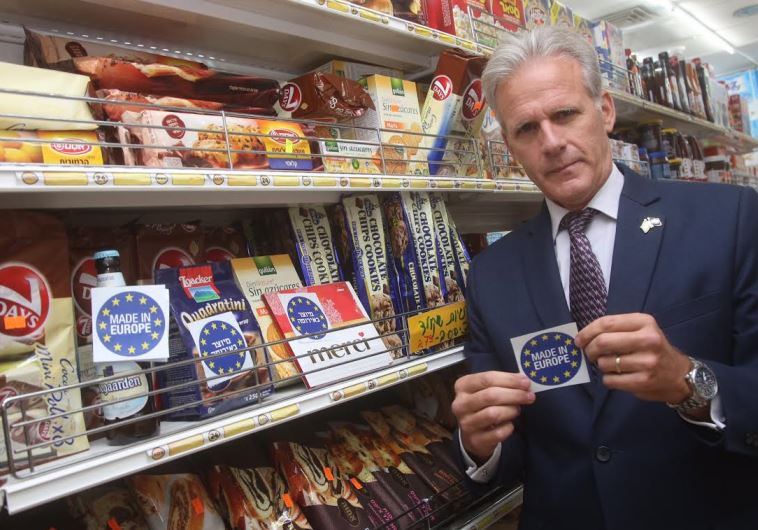Borderline Views: Diplomatic self-destruction
The government of Israel has responded in its normal hysterical manner to EU labeling initiative rather than thinking its way through the situation.
 MK Michael Oren with Made in Europe sticker(photo credit: MARC ISRAEL SELLEM)Updated:
MK Michael Oren with Made in Europe sticker(photo credit: MARC ISRAEL SELLEM)Updated: